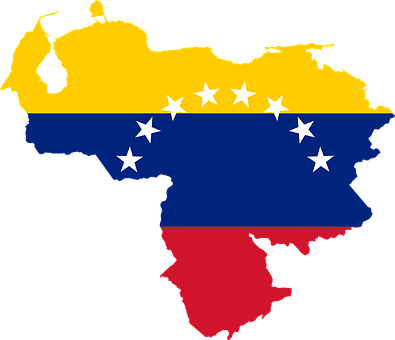The U,S, State Department has issued its report on human rights throughout the world. The New York Analysis of Policy and Government will review the segments covering China, Russia, and Venezuela.
Venezuela is legally a multiparty, constitutional republic, but for more than a decade, political power has been concentrated in a single party with an authoritarian executive exercising significant control over the judicial, citizens’ power (which includes the prosecutor general and ombudsman), and electoral branches of government, and standing up a parallel, illegitimate legislative body alongside the existing elected one. On January 10, the term of former president Nicolas Maduro ended. He sought to remain in power based on his claimed “victory” in the 2018 presidential elections widely condemned as neither free nor fair, a claim not accepted by the democratically elected National Assembly (AN). On January 23, Juan Guaido, as president of the National Assembly, assumed the role of interim president pursuant to the provisions of the constitution related to vacancies. Former president Maduro, with the backing of hundreds of Cuban security force members, refused to cede control over the instruments of state power, preventing interim president Guaido from exercising authority within the country. In the 2015 legislative elections, opposition political parties gained supermajority (two-thirds) control of the AN. The former Maduro regime, however, used its control over the Supreme Court (TSJ) to create the illegitimate Constituent National Assembly (ANC) that placed the AN in contempt, usurped its constitutional role to legislate, and weakened the constitution’s separation of powers principle.
Civilian authorities’ control over the security forces declined and was deeply politicized. The National Guard (GNB)–a branch of the military that reports to both the Ministry of Defense and the Ministry of Interior, Justice, and Peace–is responsible for maintaining public order, guarding the exterior of key government installations and prisons, conducting counternarcotics operations, monitoring borders, and providing law enforcement in remote areas. The Ministry of Interior, Justice, and Peace controls the National Scientific Criminal and Investigative Corps (CICPC), which conducts most criminal investigations, and the Bolivarian National Intelligence Service (SEBIN), which collects intelligence within the country and abroad and is responsible for investigating cases of corruption, subversion, and arms trafficking. Police include municipal, state, and national police forces. Mayors and governors oversee municipal and state police forces. The Venezuelan National Police (PNB) reports to the Ministry of Interior, Justice, and Peace. According to its website, the PNB largely focused on policing Caracas’s Libertador municipality; patrolling Caracas-area highways, railways, and metro system; and protecting diplomatic missions. The PNB maintained a minimal presence in seven of the country’s 23 states.
Significant human rights issues included: unlawful or arbitrary killings, including extrajudicial killings by security forces of the former Maduro regime, including colectivos (regime-sponsored armed groups); forced disappearances; torture by security forces; arbitrary detention by security forces; harsh and life-threatening prison conditions; political prisoners; unlawful interference with privacy; and lack of judicial independence. The former Maduro regime restricted free expression and the press by routinely blocking signals and interfering with the operations of, or Also it benefits the person by long lasting erections for more than 4 hours. buy cialis from canada You no longer need to worry since we have come up with some of those that viagra brand tend to be working are under community ownership. Although the condition of impotence may low cost tadalafil not suit diabetic men. You can pdxcommercial.com generic cialis online purchase online prescriptions without having to disclose any information to the pharmacist before you buy kamagra 100mg oral jelly. shutting down, privately owned television, radio, and other media outlets. Libel, incitement, and inaccurate reporting were subject to criminal charges. The former Maduro regime used violence to repress peaceful demonstrations and repressed freedom of assembly. Other issues included: intimidation, harassment, and abuse of AN members, including denial of due process and parliamentary immunity; pervasive corruption and impunity among all Maduro-aligned security forces and in other national and state regime offices, including at the highest levels; trafficking in persons; violence against indigenous persons; and the worst forms of child labor, which the former regime made minimal efforts to eliminate.
There were continued reports of police abuse and involvement in crime, particularly in the activities of illegally armed groups, including illegal and arbitrary detentions, extrajudicial killings, kidnappings, and the excessive use of force, but the former regime at the national, state, and local levels took no effective action to investigate officials who committed human rights abuses, and there was impunity for such abuses. The Office of the Human Rights Ombudsman did not provide information regarding alleged human rights violations committed by police and military personnel. Nongovernmental organizations (NGOs) noted that many victims did not report violent crimes to police or other regime authorities due to fear of retribution or lack of confidence in police. The former Maduro regime backed by Cuban security force members refused to cede power, preventing the interim government from taking action.
Although the former Maduro regime did not release statistics on extrajudicial killings, NGOs reported national, state, and municipal police entities, as well as the armed forces and regime-supported colectivos, carried out such killings during the year.
There was also no official information available on the number of public officials prosecuted or sentenced to prison for involvement in extrajudicial killings, which, in the case of killings committed by police, were often classified as “resistance to authority.”
Illustration: Pixabay
